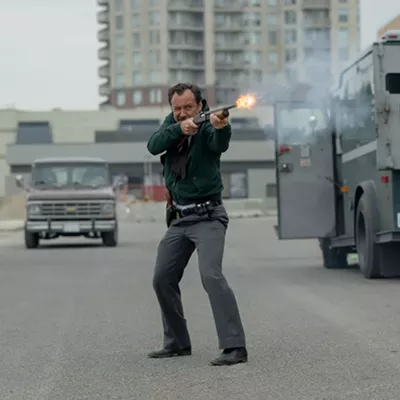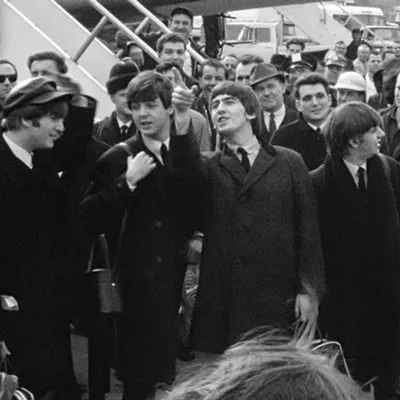If you asked people to name the whitest professional sport, hockey would likely come up first. It's certainly the least diverse of the major team sports in North America. Oscar-nominated filmmaker Hubert Davis tackles the subject tastefully but forcefully in his documentary Black Ice, which explores the history and current status of Black players in hockey. Focused almost entirely on Canada, where hockey is the national pastime, Black Ice uses its subject as a jumping-off point to examine racism in a country known for its reserve and politeness.
That reputation for niceness can also cover for a reluctance to talk about difficult issues, as multiple interview subjects point out. Canadians may want to believe that racism is primarily an American problem, but Davis makes a convincing case that it's endemic in Canadian society as well, as demonstrated via the country's most beloved sport.
Black Ice shifts back and forth between stories from contemporary National Hockey League players and the history of the Colored Hockey League, an organization akin to baseball's Negro Leagues in the U.S. In that way, Davis shows that Black players have a long history with hockey and that their relative scarcity on professional teams isn't a result of a lack of interest, skill or experience. Even when expressing frustration at mistreatment from white colleagues and spectators, the interview subjects emphasize their love for the game and their Canadian pride.
That allows Davis to infuse Black Ice with optimism, despite delving into troubling situations that seem far from being resolved. Black players talk about being subject to racist language starting when they were small children playing on local teams, and there's very little accountability for those actions. Former NHL player Akim Aliu, who accused a white NHL coach of using racial epithets, sometimes seems to stand alone as a voice for change within the league, and Black Ice depicts his struggles to return to playing after the latest in a string of 13 surgeries for various on-ice injuries. He's given his health to a sport that has given him little humanity in return.
At the same time, Aliu dedicates himself to passing on his love of hockey to the next generation, ensuring that future players of color have better opportunities and better treatment than he did. Many of the players that Davis interviews — including NHL players P.K. Subban, Wayne Simmonds and Matt Dumba — show similar dedication, and Black Ice itself could serve as a tool for opening up hockey to a more diverse community. That includes more gender diversity as well, and Davis wisely gives plenty of screen time to Black female players who face additional layers of discrimination.
As a film, Black Ice is slick but largely conventional, relying primarily on talking-head interviews and archival footage, including some endearing home video clips of future professionals playing hockey as children. Davis attempts to tackle so much material, over such a large span of history, that Black Ice can feel disjointed, skipping around among its various subjects without a unifying narrative through-line. Everyone Davis interviews has something valuable to say, but they don't always connect to each other as strongly as they could.
Still, Black Ice is a worthwhile conversation starter, and while it may not be essential viewing in theaters, it will fit perfectly alongside challenging sports documentary series like ESPN's 30 for 30 and Netflix's Untold when it eventually hits streaming platforms. As other sports have faced higher-profile reckonings with racial injustice, Black Ice illustrates that hockey isn't and shouldn't be exempt, just because its problems tend to be quieter. Davis provides a platform for people who've too easily been silenced, and he makes sure that they're taken seriously on and off the ice. ♦

















